Internet Brands, Inc., the smaller brother of IAC in terms of Internet strategy, and an Internet holding company with a number of second tier e-brands went public in the last weeks of 2007. They filed for their IPO back in July 2007 and were then planning to raise $100M/$115M million.
Internet Brands, Inc. was by that time planning to sell 3,750,000 shares of Class A common stock and the selling stockholders named in this prospectus are selling 5,816,454 shares of Class A common stock. We will not receive any of the  proceeds from the shares of Class A common stock sold by the selling stockholders. The company and some of the selling stockholders have granted the underwriters a 30-day option to purchase up to an aggregate of 1,434,968 additional shares of Class A common stock, to cover over-allotments, if any. This was an initial public offering of our Class A common stock. They have an expectation the initial public offering price of our Class A common stock to be between $10.00 and $12.00 per share and they have applied for approval to list our Class A common stock on the NASDAQ Global Market under the symbol “INET.”Â
proceeds from the shares of Class A common stock sold by the selling stockholders. The company and some of the selling stockholders have granted the underwriters a 30-day option to purchase up to an aggregate of 1,434,968 additional shares of Class A common stock, to cover over-allotments, if any. This was an initial public offering of our Class A common stock. They have an expectation the initial public offering price of our Class A common stock to be between $10.00 and $12.00 per share and they have applied for approval to list our Class A common stock on the NASDAQ Global Market under the symbol “INET.”Â
The company revealed no specific plans for the use of the net proceeds of this offering. The principal reasons for the offering are to provide their stockholders liquidity in the public equity market, raise cash for general corporate purposes, which may include working capital and capital expenditures, and support the company’s general growth plan, which includes possible future acquisitions of complementary products, technologies and businesses. The timing and amount of their actual expenditures will be based on many factors, including cash flows from operations and the anticipated growth of the business. Pending these uses, Internet Brands Inc. intends to invest the net proceeds of this offering primarily in investment-grade, interest-bearing instruments.
The company was founded in 1998 as CarsDirect.com and, reflecting its growth and diversification, changed its name in 2005 to Internet Brands, Inc. and is a subsidiary of Idealab. Credit Suisse and Thomas Weisel Partners were underwriting the IPO. Investors include Idealab, the company’s largest shareholder, Foundation Capital, Clearstone Venture Partners, among others. It is interesting to note the fact that Idealab Holdings, L.L.C., through its ownership of our Class A common stock and exclusive ownership of our Class B common stock, will have control of approximately 67% of the votes represented by our Class A common stock, on an as-converted basis, and Class B common stock outstanding as of September 30, 2007. Thus, Idealab Holdings, L.L.C. will be able to influence or control matters requiring approval of our stockholders, including the election of directors and the approval of mergers, acquisitions and other significant corporate transactions.
What happened since then?
In times when the IPO market isn’t what it was even a few months ago the El Segundo, Calif.,-based operator of small, consumer-focused Web sites managed to go public, unlike a growing crowd of other technology companies being forced to pull or postpone their IPOs. Some popular and web 1.0 Internet companies that have recently pulled off their IPOs include GoDaddy, Classmates and Accoona (Planned on $80.5) among others. By contrast, looking to capitalize on the Apple halo effect, three former company executives, including co-founder Steve Wozniak, took their new company, Acquicor Technology, public 2006 in an IPO raising $150 million. The money they raised is purely based on their reputation, as Acquicor Technology, is officially designated as a “blank-check” company, meaning they don’t have any principal activity or business model yet and can do whatever they want with investor money, when raised.
Interestingly, instead of going further with its initial plans to sell 9.57 million shares between $10 and $12 a share, Internet Brands, Inc. settled for selling 6 million shares at $8 each. This put together with the fact their three quarters of 2007 resulted in a $2.5 million loss, which is not a good way to kickoff an IPO.
Second, instead of raising as much as $115 million, the company took in $48M or about 42 cents for every dollar it had hoped to raise. Internet Brands closed its first day of trading at $8, unchanged from the offer price — despite trading volume of 1 million shares, which was more than 10 times the average daily volume since then.
The company’s today (January 14, 2008) market capitalization is $260.63M where the 52Wk High was $8.87 while the 52Wk Low is $5.84. Today’s stock quote is at $6.20, way below its IPO stock price.
The company had revenues of $85 million in 2006 while the 2007’s revenues have actually declined from $65.2 million to $64.9 million. Its Q107 revenues declined to $19.1 million, compared to $21.9 million in Q106. This has been attributed to the slowing interest in the consumer Internet segment, especially for the auto industry. With 35 acquisitions during 2007, including Jelsoft Enterprises’ vBulletin, ApartmentRatings.com, DVD Talk and ePodunk, it has been looking to improve the communications technology across its growing network of commerce sites.
The acquisitions made by Internet Brands, Inc. total $84.8M as of today.
The guys behind vBulletin (JelSoft Enterprises) have said by that time “We are pleased to announce that Jelsoft Enterprises Limited has been acquired by Internet Brands, Inc., a leading provider of automotive, travel and home-related sites and communities. As part of a larger organisation, with more than 500 employees, Jelsoft has access to additional resources, support and business expertise which will ensure that we can continue to grow and flourish. Products will continue to be actively developed and fully supported, and as time goes on you will begin to see noticeable changes and improvements that are made possible by being part of a larger organization.†The vBulletin’s co-founder, John Percival, left the company.
The company is leveraging over 27M unique visitors per month and is having agreements and relationships with the various vendors that benefit through their sites. CarsDirect does, for example, collect money from the dealers that are signed to their network. These dealers provide the vehicles to the shoppers on the site. The larger dealers clearly source more vehicles and are therefore likely to be paying more to CarsDirect. Some public sources claim the dealers pay anywhere from $35-$75/CPM, which is fairly high price and is perhaps brining in solid ad revenues to the company. More than 3,000 local car dealers have joined its nationwide network and it has alliances with Penske Automotive Group (formerly United Auto Group).
In general, Internet Brands Inc. seems to have some clear strategy problems. Their intent is to be a leading provider in community based research and transactions in the areas of automotive, real estate and travel, and they certainly own enough web properties in the respective categories to be the leader. However, what Internet Brands Inc. has not done well is to leverage the 40+ brands they own to create an ultimate experience in any of those sectors. Online sources claim that the teams, part of the many acquired companies, were forced to integrate to their corporate structure way too quickly resulting in the opposite situation where Internet Brands Inc.’s companies seem disjoint, disintegrated with little to no ability to create game changing synergy.Â
Maybe even more concerning is that Internet Brands Inc. owns many so called web 1.0 or web 1.5 brands, websites that are community driven, but are doing so with a look and feel of the past Internet decade. What makes this concerning is that Internet Brands Inc. is in a dangerous position of gradually losing its various communities to new-comers that take full advantage of web 2.0 technologies and functionality. Internet Brands Inc. should use the money they’ve raised from the IPO to either develop or acquire better positioned web properties towards the web 2.0-age if they want to retain and expand their online offerings and reach.
By contrast, Jefferies & Co initiates INET with a Buy and a $10 target saying as an owner-operator of a broad portfolio of vertically-oriented sites, INET is benefiting from the fragmentation of online audiences, and advertisers’ quest for highly targeted consumers. The investment firm says traffic growth, in part through acquisitions, and improvement in monetization should continue to drive INET’s prospects long-term.
Below are some of the recent sales of unregistered securities, including acquisitions and stock option plans. Since January 1, 2004, the company has issued the following securities that were not registered under the Securities Act of 1933:
1. On December 31, 2004, we acquired certain assets and liabilities of LoanApp, Inc., and all of the stock of LoanApp, Inc., an affiliate of Myers Internet, Inc., for $2.4 million, including 212,563 shares of our Class A common stock. The 212,563 shares were issued to Warren H. Meyer, the controlling stockholder of Myers Internet, Inc. and the then sole stockholder of LoanApp, Inc., as follows: On December 30, 2007, January 31, 2005, February 2, 2005, and June 10, 2005, we issued 152,284, 15,863, 22,208, and 22,208 shares, respectively.
2. On April 26, 2005, we exchanged 2,200,000 shares of Series D preferred stock for 2,000,000 shares of Class B common stock, pursuant to a Share Exchange Agreement with Idealab Holdings, L.L.C.
3. On June 1, 2005, we acquired the assets and certain liabilities of 1-800 Communications, Inc. and Advanced Lead Generation, Inc. for $8.5 million, which consideration included 89,392 shares of our Class A common stock issued on June 1 to Jonathan Kratter and 89,392 shares of our Class A common stock issued on June 1 to Stuart Heller, the sole shareholders of the selling corporations.
4. On July 15, 2005, in connection with the acquisition of VacationHomes.com, we issued 15,000 shares of Class A common stock to Kurt Leinbach.
5. On February 22, 2006, we acquired certain assets and liabilities of Client Shop, Inc. In connection with this transaction, we issued 14,113 shares of Class A common stock to Client Shop, Inc.
6. On September 13, 2006, we issued 5,000 shares of Class A common stock to Heidrick and Struggles, Inc. pursuant to a warrant exercise at $0.70 per share.
7. On February 27, 2007, we extended the expiration date for four warrants to purchase 1,554,314 shares of Series F preferred stock, issued to Penske Motor Group, Inc. (formerly Penske Automotive Group, Inc.), Penske Automotive Group, Inc. (formerly United Automotive Group, Inc.) and Penske Corporation, to (i) as to three of the warrants, the earlier of December 31, 2008 or the termination of Roger Penske’s service as a director and (ii) as to one of the warrants, December 31, 2008.
8. Between January 1, 2004 and the date hereof, we granted stock options to purchase 3,519,755 shares of Class A common stock at exercise prices ranging from $0.50 to $9.50 per share, with an average price per share of $3.31, to employees and consultants pursuant to our 1998 Stock Plan.
9. Between January 1, 2004 and the date hereof, we granted stock options to purchase 95,500 shares of Class C common stock at exercise prices ranging from $0.50 to $4.70 per share, with an average price per share of $1.12, to employees and consultants pursuant to our 2000 Stock Plan.
10. Between January 1, 2004 and the date hereof, we awarded stock options to purchase 16,750 shares of Class A common stock at an exercise price of $9.70 per share, and 386,702 shares of our restricted stock, valued at $9.70 per share, to directors, officers and employees pursuant to our 2007 Equity Plan.
11. Between January 1, 2004 and the date hereof, we granted stock options to purchase 181,806 shares of Class A common stock at exercise prices of $1.50 per share to employees and directors outside of our 1998 and 2000 Stock Plans and 2007 Equity Plan.
12. Between January 1, 2004 and the date hereof, we issued an aggregate of 2,293,378 shares of Class A common stock upon exercise of options under our 1998 Stock Plan, of which 532,569 shares were reacquired through repurchase of restricted (unvested) shares, promissory note repayment and exercise of right of first refusal.
13. Between January 1, 2004 and the date hereof, we issued an aggregate of 20,641 shares of Class C common stock upon exercise of options under our 2000 Stock Plan.
14. Between January 1, 2004 and the date hereof, we issued an aggregate of 106,806 shares of Class A common stock upon exercise of options granted outside of our 1998 and 2000 Stock Plans and 2007 Equity Plan, of which 29,748 shares were reacquired through repurchase of restricted (unvested) shares.
Â
15. Between January 1, 2004 and the date hereof, we issued an aggregate of 1,042,985 shares of Class A common stock upon the exercise of a warrant held by JPMorgan Chase & Co.
More about Internet Brands, Inc.
Internet Brands is a leading Internet media company that builds, acquires and enhances a rapidly growing network of branded websites in the automotive, travel and leisure, and home and home improvement categories. Utilizing a cost-efficient, proprietary operating platform, the Company operates and enhances websites that attract consumers through rich content, opportunities for participation in strong online communities, and user-friendly functionality, which enables the company to sell targeted advertising through various formats, such as cost per lead, cost per thousand impressions, cost per click, cost per action, and flat fees. Internet Brands operated 45 principal websites as of September 30, 2007, and attracted 27 million unique visitors during the month of September.
The company is based in El Segundo, CA and as of 2006 it had 559 employees. Major competitors include Autobytel, AutoNation, IAC, among others.
Some of the more popular brands of the company are:
Other web properties include:
- Autodata
- NewCarTestDrive.com
- BBOnline.com
- CruiseMates.com
- VacationHomes.com
- Loan.com
- Mortgage101.com
- RealEstateABC.com
- AudiWorld.com
- CorvetteForum.com
- Ford-Trucks.com
- FlyerTalk.com
- TrekEarth.com
- Wikitravel.org
- BrokerOutpost.com
- DoItYourself.com
And more…
Management team
Robert N. Brisco / Chief Executive Officer
Bob Brisco has been CEO, President, and Director of Internet Brands since 1999. He has led the growth of the company from an early stage to a position today of significant and rapidly growing profitability. Brisco has extensive experience in  building high performing organizations and consumer brands, has led business turnarounds, and has been instrumental in the success of several Internet businesses.
building high performing organizations and consumer brands, has led business turnarounds, and has been instrumental in the success of several Internet businesses.
Brisco joined Internet Brands from Universal Studios Hollywood and CityWalk, where he was President of one of the largest entertainment destinations in the world, hosting 10 million visitors per year. He oversaw all aspects of the business, including operations, marketing, sales, technology, finance, and entertainment. Prior to Universal, Brisco was senior vice president of advertising, marketing, and new business development for The Los Angeles Times. At The Times, he was responsible for over $1 billion of revenue. He oversaw all of The Times’ new media operations, directing the launch of LATimes.com, and leading acquisitions such as Hollywood.com. As a corporate officer of Times Mirror, Brisco was central in the company’s new media investments. He was a founding board member of Classified Ventures, which has launched Internet services in the real estate, rentals, and automotive categories. He also served as a Director of La Opinion, the largest Spanish language newspaper in the U.S. Previously, Brisco was a consultant with McKinsey & Co. and the Boston Consulting Group. As a consultant, he specialized in media and consumer products and developed winning business strategies for many clients. Brisco received an MBA from UCLA and a BA from USC (summa cum laude) in economics and journalism.
Lisa Morita / Chief Operating Officer
Lisa Morita oversees the company’s day-to-day operations including sales, customer service, pricing, and product and business strategy for the Automotive and Home Divisions. Prior to joining Internet Brands in March 2007, Morita was Senior Vice President of Customer and Content Solutions at Yahoo! Search Marketing. She was responsible for leading the customer and editorial operations that supported online advertisers who spent billions of dollars in search marketing. She led the customer operations team through the successful migration of its hundreds of thousands of online advertisers onto an entirely new platform, “Project Panama.” Morita joined GoTo.com in 2001 and scaled the operation during its rapid growth as Overture Services. Morita has extensive marketing and general management experience in companies ranging from early stage to Fortune 500 companies. She was SVP of Marketing at eMind, LLC, where she was part of the team that grew the start-up company into a leading provider of eLearning solutions. Previously, Morita was Vice President of Advertising and Marketing at The Los Angeles Times, responsible for retail ad sales and marketing. She began her career at Carnation Company/Nestle USA in brand management running brands including the most profitable in the division. Morita received an M.B.A. from Stanford University and earned a B.A. from Occidental College.
Debra Domeyer / Chief Technology Officer
As Chief Technology Officer, Debra Domeyer oversees information technology, creative services, development and architecture for Internet Brands. Prior to joining Internet Brands in 1999, she served as Vice President and Chief Information Officer at PG&E Energy Services. There, she created Web-based information products in support of a $220 billion nationwide industry initiative promoting commodity products. Prior to PG&E, she was Vice President of Information Systems for Times Mirror Company. Domeyer also has extensive experience in the mortgage industry. From 1989 to 1993, she directed information systems operations for the Federal Home Loan Mortgage Corporation during a year of record growth, then led re-engineering improvements at Countrywide Home Loans, one of the country’s leading mortgage loan companies. From 1983 to 1988, Domeyer served in the White House, supervising development of distributed applications and secure communications for the President’s trips worldwide, including the Japan Economic Summit and the US/Russia Summit in Iceland. Domeyer has a B.A. in Business from Loras College and a master’s degree in Information Systems Technology from George Washington University.
Alexander E. Hansen / Chief Financial Officer
Alex Hansen is responsible for the controllership, operational accounting, finance, planning and treasury functions for Internet Brands. He has been a Chief Financial Officer for over 15 years, serving as the finance executive for both public and private companies ranging in size from start-ups to middle-market companies with revenues over $800 million. Companies he has served, spanning the consumer products, software development, advertising and entertainment industries, include CreativePlanet, Quisic, J. Walter Thompson and GROUPE DANONE. Hansen is a partner and board committee member of Tatum LLC, a CPA (former manager with PriceWaterhouse), a member of the AICPA and the CSCPA, and a graduate of Williams College and Princeton Theological Seminary.
B. Lynn Walsh / Executive Vice President, Corporate Development and General Counsel
Lynn Walsh is responsible for structuring and negotiating acquisitions and strategic partnerships and oversees all human resource, legal, and regulatory aspects of the company’s business. Prior to joining Internet Brands in 2000, Walsh was a partner in the Technology group at Alston & Bird LLP in Atlanta, Georgia, where she specialized in public and private offerings of securities, mergers and acquisitions and corporate finance. Previously, Walsh was a partner at Hunton & Williams in Atlanta. She received her B.A. from the University of Michigan and her J.D. from Wayne State University Law School.
Chuck Hoover / Senior Vice President, Marketing and Business Development
Chuck Hoover oversees Internet Brands’ marketing including online and offline advertising, consumer and product research, acquisition and retention strategies, and PR. He is also responsible for Internet Brands’ business development initiatives to create relationships with strategic partners and oversees advertising sales. Hoover joined Internet Brands in December 1999 from Homestore.com, operator of the nation’s largest real estate Web sites. At Homestore he was responsible for consumer marketing including management of distribution partnerships with top portals and product development. Prior to Homestore, Hoover was Vice President of Marketing for PeopleLink, the first company incubated by Idealab and the leader in providing business to business community services. Previously, Hoover worked at the Los Angeles Times in the Marketing and New Business Development group developing new advertising products for major retailers and entertainment companies, including the acquisition of Hollywood.com. Hoover received an MBA from Stanford University and a BA in economics Phi Beta Kappa from Occidental College.
Gregory T. Perrier / CEO & President, Autodata Solutions Company
As President and CEO since 1993, Greg Perrier has built Autodata Solutions into one of North America’s largest software and services boutiques focused on the automotive industry. The company, which Internet Brands acquired in mid-1999, serves every manufacturer in North America from Acura to Volvo through its diverse suite of products and services. Autodata’s products and services help auto manufacturers throughout all stages of the selling-chain from market analytics, product planning, vehicle configuration management, order placement, in-dealership retail systems, and dealership personnel training, to consumer-facing web sites. Perrier earned an honors degree in business from the Ivey School of Business in 1984 and immediately following served as a consultant with Price Waterhouse.
Board of Directors
Dr. Howard Morgan
Dr. Morgan has served as a Director of Internet Brands since February 1999 and as Chairman of our board of directors since September 1999. He is also a Director of Idealab, a creator and operator of technology companies. Since 1989, Dr. Morgan has also been President of Arca Group, Inc., a consulting and investment management firm specializing in the areas of computers and communications technologies. He serves as a director for a number of private and public companies, including Franklin Electronic Publishers, Inc., Segue Software, Inc. and Unitronix Corp. Dr. Morgan holds a B.S. in Physics from City University of New York and a Ph.D. in operations research from Cornell University.
Robert N. Brisco
Bob Brisco has been CEO, President, and Director of Internet Brands since 1999. Mr. Brisco joined Internet Brands from Universal Studios Hollywood and CityWalk, where he was President of one of the largest entertainment destinations in the world. Prior to Universal, Mr. Brisco was Senior Vice President of advertising, marketing, and new business development for The Los Angeles Times. He oversaw all of The Times’ new media operations, directing the launch of LATimes.com, and leading acquisitions such as Hollywood.com. Previously, Mr. Brisco was a consultant with McKinsey & Co. and the Boston Consulting Group, specializing in media and consumer products.
Roger S. Penske, Sr.
Mr. Penske has served as a Director of Internet Brands since May 2000. He has also been Chairman of the Board and CEO of Penske Corporation since 1969. Penske Corporation is a privately-owned diversified transportation services company that holds, through its subsidiaries, interests in a number of businesses. Mr. Penske has also been Chairman of the Board of Penske Truck Leasing Corporation since 1982 and of UnitedAuto Group since 1999. He serves as a member of the Boards of Directors of General Electric Company and Universal Technical Institute, Inc.; and is a director of Detroit Renaissance and a member of The Business Council.
Marcia Goodstein
Marcia Goodstein has been a member of the board of Internet Brands since August 2004. Ms. Goodstein founded Idealab with Bill Gross in March 1996 and serves as the company’s Chief Operating Officer and President. Prior to joining Idealab, Ms. Goodstein worked in business development and marketing for Enfish Corporation, a software development company. Ms. Goodstein was also an early employee of Gemstar Development Corporation and was responsible for media licensing for North America, as well as marketing and distribution in South America.
Gerald Greenwald
Mr. Greenwald has served as a Director of Internet Brands since September 1999. Mr. Greenwald is Chairman Emeritus of United Air Lines and served as the Chairman and CEO of United Air Lines from 1994 to 1999. From 1979 to 1990, Mr. Greenwald was employed by the Chrysler Corporation, where he worked in various positions including Corporate Controller and CFO before being promoted to Vice Chairman, a position in which he shared responsibility with the CEO for the operations of the company. From 1957 to 1979, he was employed by the Ford Motor Company, where he worked in several positions including Controller, Director of Ford’s operations in Europe and as President of Ford of Venezuela. Mr. Greenwald is one of the founders of Greenbriar Equity Group.
Bill Gross
Bill Gross has served as a Director of Internet Brands since its inception. He is the Founder, Chairman and CEO of Idealab, a creator and operator of technology companies. A lifelong entrepreneur, Mr. Gross has launched a number of successful companies, including GNP Development (acquired by Lotus), Knowledge Adventure (acquired by Havas Vivendi) and Overture Services, to name a few. A well-known visionary and entrepreneur, Mr. Gross sits on the Board of Directors of Overture Services (NNM: OVER) and the Board of Trustees of the California Institute of Technology. Mr. Gross received his B.S. in Mechanical Engineering from the California Institute of Technology.
Kenneth Gilman
Kenneth Gilman has been a member of the board of Internet Brands since January 2002. Mr. Gilman joined Asbury Automotive Group following a 25-year career with the Limited Inc. where his most recent assignment was CEO of Lane Bryant. From 1993 to 2001, Mr. Gilman served as Vice Chairman and Chief Administrative Officer of The Limited, Inc. with responsibility for finance, information technology, supply chain management, production, real estate, legal and internal audit. From 1987 to 1993, he was Executive Vice President and CFO. He joined the company’s executive committee in 1987 and was elected to the board of directors in 1990.
Martin Melone
Mr. Melone has served as a Director of Internet Brands since August 2005. Mr. Melone was a partner of Ernst & Young, LLP from 1975 to 2001, where he was responsible for global clients in a wide range of industries. He now serves on the Board of Directors of Countrywide Financial Corporation, where he is Chairman of the Audit and Ethics Committee. Mr. Melone also serves on the Boards of Directors of the California Science Center Foundation and Public Counsel Law Center. He is a member of the American Institute of Certified Public Accountants and the California Society of Certified Public Accountants.
James Ukropina
Mr. Ukropina has served as a Director of Internet Brands since February 2006. He is also a director of Lockheed Martin Corporation, Pacific Life Corp, Trust Company of the West, Central Natural Resources and the Keck Foundation, and is the CEO of Directions, LLC, a management and strategic consulting firm. Mr. Ukropina formerly served as Vice-Chairman of the Board of Trustees of Stanford University and as an advisor and board member of numerous other public, private and non-profit entities, including IndyMac Bancorp, Santa Fe International, Security Pacific Corp., Occidental College, and the California Chamber of Commerce. He has chaired various board committees, including the audit, compensation, nominating and special committees, and has authored a number of articles on corporate governance and executive compensation. He was a partner with the international law firm, O’Melveny & Myers LLP until 2000 and has served as Of Counsel since that time. Mr. Ukropina holds a B.A. and a M.B.A. from Stanford University and a LL.B from the University of Southern California.
More
http://www.internetbrands.com
http://finance.google.com/finance?q=INET
http://www.paidcontent.org/entry/419-idealab-backed-holding-firm-internet-brands-files-for-100-million-ipo
http://www.sec.gov/Archives/edgar/data/1080131/000104746907008138/a2179214zs-1a.htm
http://mashable.com/2007/10/31/internet-brands-ipo/
http://www.paidcontent.org/entry/419-internet-brands-to-raise-up-to-45-million-in-ipo/
http://mashable.com/2007/07/10/vbulletin-acquired-by-internet-brands/
http://www.paidcontent.org/entry/419-internet-brands-acquires-real-estate-community-site-apartmentratings
http://www.paidcontent.org/entry/419-message-board-software-vbulletin-bought-by-internet-brands
http://www.techcoastreview.com/2007/11/internet-brands-goes-public.html
http://stocks.us.reuters.com/stocks/fullDescription.asp?rpc=66&symbol=INET.O
http://www.hoovers.com/internet-brands/–ID__59923–/free-co-factsheet.xhtml
http://www.pehub.com/article/articledetail.php?articlepostid=8919
http://www.thestreet.com/s/internet-brands-ipo-suggests-return-to-normalcy/newsanalysis/techstockupdate/10391500.html
http://www.sec.gov/Archives/edgar/data/1080131/000104746907008138/a2179214zs-1a.htm#toc_dk79101_1
http://www.techdirt.com/articles/20060808/1526256.shtml
http://www.techdirt.com/articles/20060727/0843233.shtml
http://www.vbulletin.com/forum/showthread.php?p=1383883#post1383883
http://en.wikipedia.org/wiki/Internet_Brands
http://news.moneycentral.msn.com/provider/providerarticle.aspx?feed=BCOM&date=20080111&id=8025636
 can manage, compare and collaborate on Excel documents – features that Microsoft surprisingly hasn’t added on their own.
can manage, compare and collaborate on Excel documents – features that Microsoft surprisingly hasn’t added on their own.
 the new entity figures out how to more effectively monetize its traffic they are not going to make any impact on Google’s advertising business. Google’s AdSense is still paying most to web publishers compared to other
the new entity figures out how to more effectively monetize its traffic they are not going to make any impact on Google’s advertising business. Google’s AdSense is still paying most to web publishers compared to other 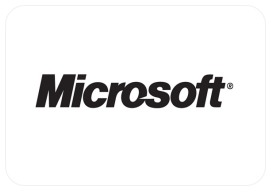
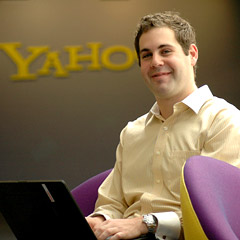 Yahoo! has spent furiously on the development of Panama, a rival new advertising platform aside buying a number of other advertising companies like
Yahoo! has spent furiously on the development of Panama, a rival new advertising platform aside buying a number of other advertising companies like 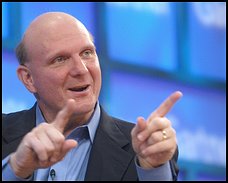 and Yahoo!. Under our proposal, Microsoft would
and Yahoo!. Under our proposal, Microsoft would 
 work hard to make researching higher education easy. Our guided search Wizard finds only those programs that meet your interests, requirements, and qualifications. The basic information you provide helps us connect you with the schools that can best serve you.
work hard to make researching higher education easy. Our guided search Wizard finds only those programs that meet your interests, requirements, and qualifications. The basic information you provide helps us connect you with the schools that can best serve you.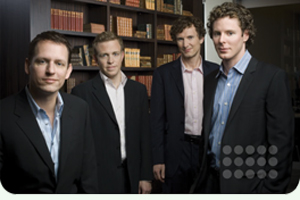 institutional money raised for the Founders Fund, representing a significant increase over the original fund of $50 million, which was raised from personal investments by the managing partners and select outside investors.
institutional money raised for the Founders Fund, representing a significant increase over the original fund of $50 million, which was raised from personal investments by the managing partners and select outside investors.


 directors since September 2002, and was elected as Chairman of our board of directors in May 2004. Mr. Gore has served as a Senior Advisor to
directors since September 2002, and was elected as Chairman of our board of directors in May 2004. Mr. Gore has served as a Senior Advisor to 
 marketing IP communications to consumer markets. As Vice-President with
marketing IP communications to consumer markets. As Vice-President with 

 products and services to consumers around the globe. Prior to co-founding Fabrik, Mike served as executive vice president of Worldwide Sales and Marketing for
products and services to consumers around the globe. Prior to co-founding Fabrik, Mike served as executive vice president of Worldwide Sales and Marketing for 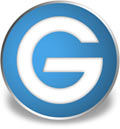

 building high performing organizations and consumer brands, has led business turnarounds, and has been instrumental in the success of several Internet businesses.
building high performing organizations and consumer brands, has led business turnarounds, and has been instrumental in the success of several Internet businesses.
 University of Pennsylvania, Josh co-founded Infonautics Corporation – an Internet information company. In 1996, Infonautics went public on the NASDAQ stock exchange.
University of Pennsylvania, Josh co-founded Infonautics Corporation – an Internet information company. In 1996, Infonautics went public on the NASDAQ stock exchange.
 Company’s Chief Technology Officer from 1997 to September 2001 overlooking all of the company research and product development activities. Dr. Lervik holds a Ph.D. from the Norwegian University of Science and Technology, and was awarded the best overall PhD at NTNU in 1996/97.
Company’s Chief Technology Officer from 1997 to September 2001 overlooking all of the company research and product development activities. Dr. Lervik holds a Ph.D. from the Norwegian University of Science and Technology, and was awarded the best overall PhD at NTNU in 1996/97.

 of Quigo, he served as VP of Sales for USA Networks Electronic Commerce Solutions Group. He managed the e-commerce operations for CBS Sportsline, Nascar.com and the National Hockey League. In 2000, he joined AltaVista, where he negotiated and closed several large, multi-year, multi-million dollar agreements for the company. Mr. Yavonditte started his career at Ziff-Davis Publishing in NY where he held various sales and management roles. In 6 years he took Quigo from a start up to the predominant performance-driven, ad auction-based, pay-per-click advertising company in the industry.
of Quigo, he served as VP of Sales for USA Networks Electronic Commerce Solutions Group. He managed the e-commerce operations for CBS Sportsline, Nascar.com and the National Hockey League. In 2000, he joined AltaVista, where he negotiated and closed several large, multi-year, multi-million dollar agreements for the company. Mr. Yavonditte started his career at Ziff-Davis Publishing in NY where he held various sales and management roles. In 6 years he took Quigo from a start up to the predominant performance-driven, ad auction-based, pay-per-click advertising company in the industry. deal happened through out the year. Deals from all IT industry sectors are considered and put in the list, from Web and Internet to the Mobile industry as well. The size’s criterion for a deal to make the list is to be arguably no less than $100M unless the deal is symbolic in one way or another or either of the companies involved was popular enough at the time the deal took place. Otherwise we think all deals are important, at least for its founders and investors.
deal happened through out the year. Deals from all IT industry sectors are considered and put in the list, from Web and Internet to the Mobile industry as well. The size’s criterion for a deal to make the list is to be arguably no less than $100M unless the deal is symbolic in one way or another or either of the companies involved was popular enough at the time the deal took place. Otherwise we think all deals are important, at least for its founders and investors.